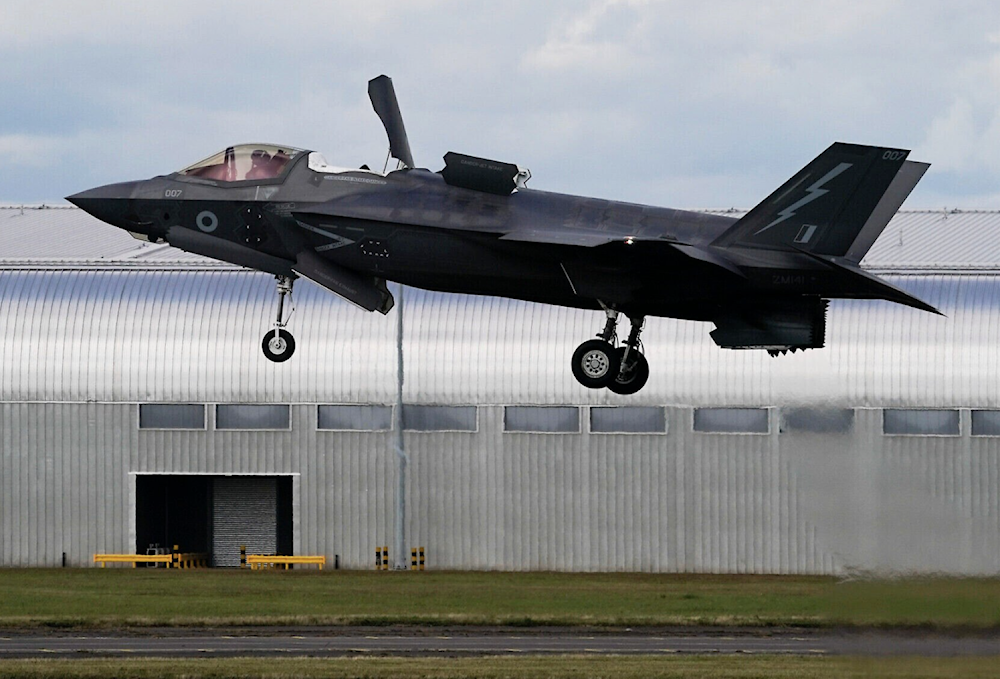US F-35 deal with Saudi Arabia threatens Israeli air superiority
The U.S. may sell F-35 jets to Saudi Arabia, sparking Israeli fears over losing air superiority and igniting concerns about a new Middle East arms race.
-

A Royal Air Force F-35 lands at the Farnborough International Air Show in Farnborough, England, on July 22, 2024. (AP)
Just days ahead of Saudi Crown Prince Mohammed bin Salman's visit to Washington, Reuters reported that the U.S. Department of Defense has advanced a potential deal to sell 48 F-35 stealth fighter jets to Saudi Arabia. According to Israeli outlet Yedioth Ahronoth, this move could significantly shift the regional balance of power.
American sources say Riyadh submitted the request directly to President Donald Trump earlier this year. After an extensive review, the Pentagon completed a technical evaluation, and the file now awaits final approval from the Secretary of Defense, administration officials, and Congress.
While no decision has been finalized, the deal's progress signals growing U.S. openness to arming Saudi Arabia with advanced weaponry—marking a potential break from decades of arms policy restraint.
'Israel' alarmed over 'Qualitative military edge'
In Tel Aviv, the proposed sale has sparked concern. The deal could undermine the long-standing U.S. commitment to maintaining "Israel’s qualitative military edge" in the region. Currently, the occupation is the only entity in the Middle East operating F-35 jets.
Yedioth Ahronoth notes that the potential deal is part of broader Saudi efforts to secure a defense pact with the US—including security guarantees and civilian nuclear cooperation—framed by Washington as part of a "new regional alliance."
A shift in US policy and the arms race
Traditionally, the U.S. has withheld advanced weapons sales to Arab states that haven’t normalized ties with "Israel." If the F-35 deal is approved, it could set a new precedent and fuel a fresh arms race in the Middle East.
Lockheed Martin, the manufacturer, confirmed that such a sale would be a "government-to-government agreement," while the White House and Pentagon declined to comment.
With Crown Prince bin Salman’s upcoming visit to Washington and U.S. lawmakers increasingly critical of arms sales to Saudi Arabia, the deal is likely to spark debate on Capitol Hill.
Yedioth Ahronoth reported that, if approved, this deal could be remembered as a historic turning point, one that ends decades of Israeli aerial supremacy in the region.

 2 Min Read
2 Min Read








